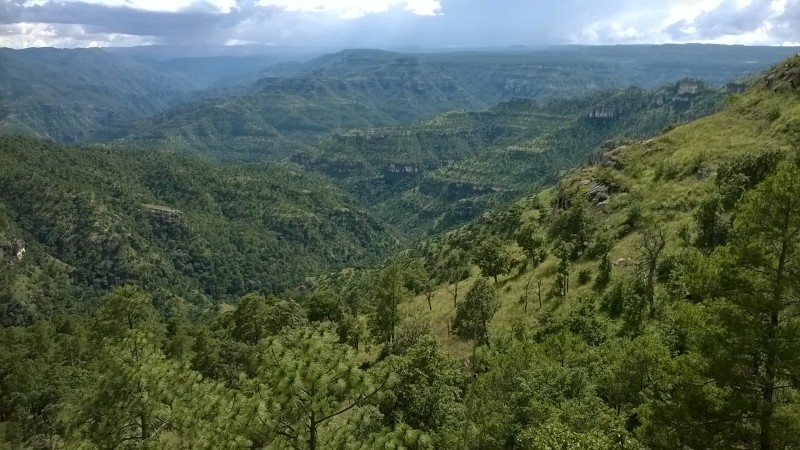By Lisa Larkin, Esq.
Lisa Larkin is an attorney in Tucson, Arizona who has owned and operated MexicoRealty.com for over fifteen years. She has consulted with countless Americans and Canadians interested in buying, selling and developing Mexican Property and she has participated in many title transfers. She has presented seminars on Buying Real Estate in Mexico since 1994 and has participated on Educational panels for the State Bar of Arizona and the Arizona School of Real Estate and Business. She was appointed to the Arizona Governor’s Task Force on Mexican Real Estate by Governor Jane D. Hull and served as a member for five years. Through the National Law Center for Inter-American Free Trade, she initiated the effort to regulate real estate practitioners in the State of Sonora.
The question I get asked most often through my Web site is whether or not it is possible for foreigners to own real estate in Mexico. The answer is a resounding Yes! Follow the law of the country of Mexico and you can own property in Mexico, obtain title insurance on it and even get a loan for it if you qualify.
While the Mexican Constitution of 1917 prohibited foreign ownership of residential real property within 50 Kilometers of the coast and 100 kilometers of the border (restricted zone), changes to the Foreign Investment Law now make it possible to own property in these areas as well as in the interior of Mexico.
Foreigners can own property in the “restricted zone” through a “fideicomiso” or bank trust. Under this arrangement, a Mexican Bank holds naked legal title to the property and the buyer as beneficiary receives all of the rights of ownership. The initial term of 50 years is renewable indefinitely. Property may be used, improved, rented, willed or sold. One of the advantages of trust ownership is the ability to appoint a substitute beneficiary allowing the title to transfer upon death without probate or payment of a transfer tax. This trust arrangement allows for foreign ownership while leaving the Mexican Constitution intact.
Property outside the “restricted zone” is owned directly, like Fee Simple title in the U.S. A clause in the deed will prohibit the foreigner from invoking the protection of his own government in the event of a dispute concerning the property.
Whether the property lies within or outside of the restricted zone, the government of Mexico is not likely to expropriate your property or simply to take it away from you on whim. They have laws of eminent domain similar to the laws in the US. This author recommends that foreigners obtain title insurance on their purchase and further that they exercise all of the typical due diligence that is used in buying property in their own country. Due diligence begins with a comprehensive preliminary purchase contract. The contract should spell out all terms and conditions of the sale, including any contingencies for inspection or title investigation.
In the preliminary contract, the seller may ask for a deposit to be applied to the purchase price. Any deposits paid directly to the seller or real estate agent should be considered at risk. Only a detailed escrow agreement and arrangement, specifically outlining contingencies and the status of deposits upon their failure or satisfaction, will protect a buyer in the event a contingency is not met and cancellation is requested. Escrow as you may be familiar with it, does not currently exist in Mexico, but is provided by Stewart Title in Houston Texas and may be provided by others.
Escrow is probably not an option if a building is to be constructed. Buyers should take care to evaluate all risks inherent with the payment of deposits in these cases. A title insurance commitment obtained by a builder along with a surety bond and a good record and reputation are factors to consider when contemplating such an investment.
If the property lies within the “restricted zone”, the preliminary contract will reference an existing trust which can be transferred, or a new trust which must be obtained if there has never been a trust on the property. If you are working with a real estate agent or builder, they will assist you with the trust paperwork. If you are working directly with a seller, you should get a qualified bilingual Mexican attorney to assist you. An attorney may also be utilized in any case and may be advisable. Some American attorneys are qualified to assist you in these matters as well and are more likely to carry professional liability insurance.
You will pay an initial fee to transfer or set up a new trust and annual maintenance fees, all to the Mexican Bank. Execution of documentation necessary to transfer or initiate a trust does not constitute transfer of title, it is just a first step in completing the title transfer process. A trust cannot be issued until a building has been completed and ready for occupancy and title transfer.
In Mexico, the Notary Public or “Notario Publico” is an attorney appointed by the government to formalize certain legal documents, including real estate contracts, transfer and record titles, and collect taxes. They are uniquely authorized to transfer and record title to property but they do not function as escrow which you may be familiar with in other jurisdictions. They do not represent either buyer or seller, they charge a fee for their services, and collect a transfer tax and capital gains tax upon the formalization of a real estate contract. The initial contract is referred to as preliminary because only Notarios may formalize real estate contracts, and they only do so when you are ready to transfer title.
Transfer of title occurs when the Notary records the sale in the Public Registry of Property. In preparation for the title transfer, The “Notario Publico” will conduct a title investigation on the property, including a verification that there are no liens or tax liability on the property. Since they do not guarantee their work, you must purchase title insurance in order to fully protect your interests. Back to Mexico News















